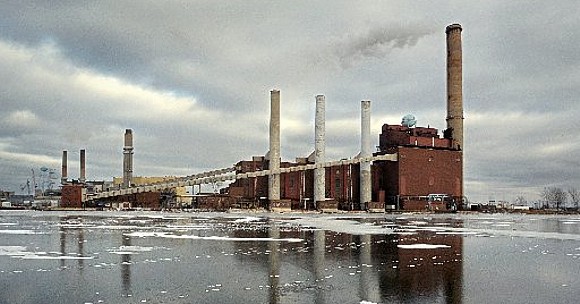Michigan Utility To Reduce Emissions From Its Coal Burning Plants As Part of Federal Settlement
 September 24, 2014
September 24, 2014  Kyriaki (Sandy) Venetis
Kyriaki (Sandy) Venetis The Michigan utility Consumers Energy agreed to a proposed settlement with the U.S. Environmental Protection Agency and the U.S. Justice Department to reduce emission including sulfur dioxide, nitrogen dioxide, and particulate matter at its coal-fired plants, which were found to exceed allowable levels under the Clean Air Act.
 Consumers Energy Coal Fired Power Plant near Bay City, Michigan. Photo courtesy of MLive Media Group.
Consumers Energy Coal Fired Power Plant near Bay City, Michigan. Photo courtesy of MLive Media Group.
The agreement will affect the company’s five Michigan coal-fired plants located in West Olive, Essexville, Muskegon, and Luna Pier. Each plant has several coal burning operating units, having a total of 12 units.
As part of the agreement, the company said that it will shut down its seven oldest coal-fired units - three units at the J.R. Whiting Generating Complex near Luna Pier; two at the B.C Cobb Generating Plant in Muskegon; and two at the Karn/Weadock Generating Complex near Bay City bordering Essexville.
Consumers Energy said that these units will comply with new emissions limits until their retirement in April 2016. In the meantime, the settlement agreement will require the company to continue operating existing pollution controls, as well as install new pollution controls onto these and all other remaining units to meet current Clean Air Act emissions standards.
The EPA says that sulfur dioxide and nitrogen oxide are the two predominant pollutants emitted from the power plants. The agency adds that these pollutants can then be “breathed in and lodged deep in the lungs, leading to a variety of health problems and even premature death.”
